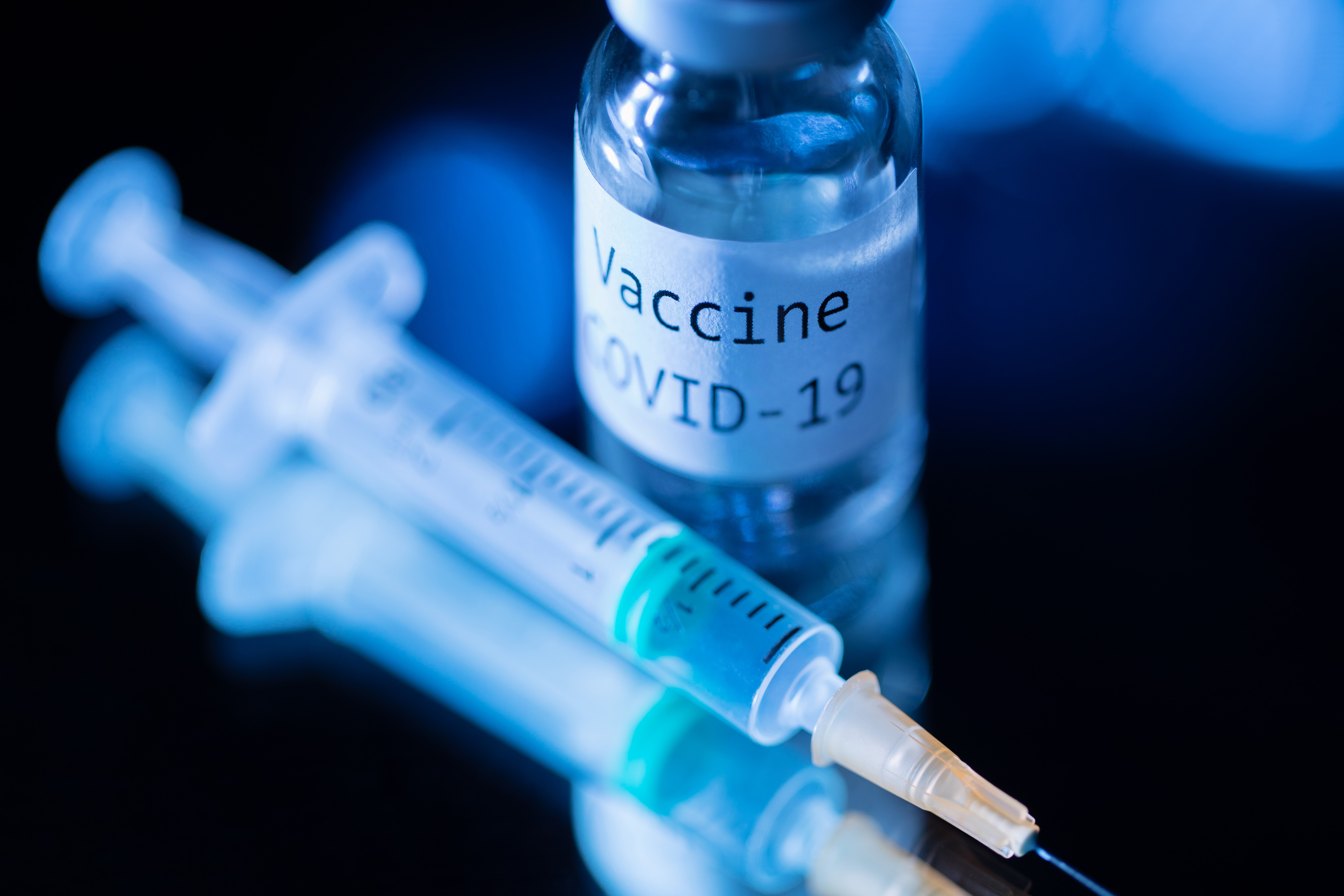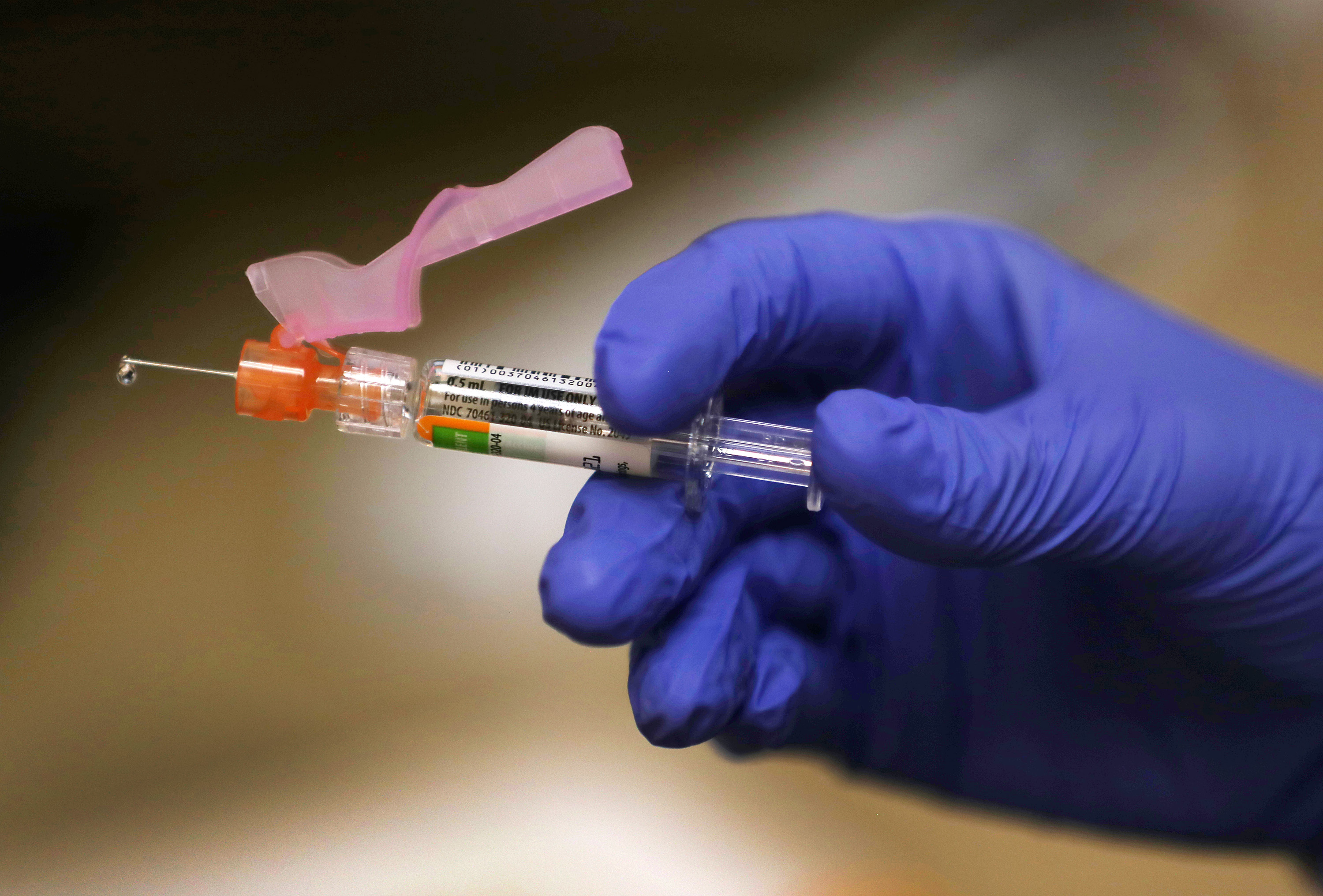New poll results show most Massachusetts residents are willing to take a COVID-19 vaccine, but many want to wait for others to go first.
Overall, 36 percent of respondents to the MassINC Polling Group survey said they plan to take the vaccine right away, while 47 percent say they will wait until after either a few or many people have taken it.
"I don't know what it's going to do to anybody," one woman told NBC10 Boston. "I'd want to see what would happen to other people."
"I think I would take it as soon as I get the opportunity," one man told us.
Seven percent of respondents said they will never take the vaccines, which are nearing their final approvals with rollouts expected to occur over several months due to supply constraints.
The results, according the poll sponsors at the Museum of Science, also highlight important racial differences, with 38 percent of white residents saying they will take the vaccine "as soon as possible," compared to 28 percent of Black residents and 22 percent of Latinx residents.
The survey, conducted in partnership with the Massachusetts League of Community Health Centers, highlights a need for doctors, medical experts and others in the scientific community to address two of the biggest concerns among those reluctant to take the vaccine -- 65 percent of poll respondents expressed concern that the vaccine has not been thoroughly tested, and 61 percent said they are reluctant to trust the government on health care issues.
Noting Black and Latinx residents have borne most of the severe health and economic impacts caused by the virus, the poll's sponsors said there's a risk of "major inequities in wider public vaccination" and called for stronger communications soon that are focused on communities most in need of the vaccine.
“How do we let you know there’s efficacy? There’s safety?," said Michael Curry, the incoming CEO of the League of Community Health Centers. "Identifying that people of color feel the same way. That as long as we get the information we need, that we have trusted sources we believe in, we’re more likely to take it, as well.”
Eighty percent of respondents said they trust their doctors to tell them when a vaccine works and is safe, the highest level of trust among any group.
"We are at an exciting moment in our battle against COVID-19 with a multitude of vaccines in development that offer promising results. Now, as we face the push for distribution, this poll has affirmed the importance of building confidence in the science and celebrating the technological advancements that have made way for rapid, safe, and effective vaccines," said Tim Ritchie, president of the Museum of Science. "The weeks and months ahead will offer one of the biggest tests, and opportunities, we have faced in science communication and the results of this poll help us shape our approach."
Claire Pierre, a practitioner with the health center, says communication is key.
"The first thing we need to do is respect the persons autonomy and to make sure that we give them the right information they need to make an informed decision,” she said. "Listening to our communities. Making sure we understand what it means for someone who’s excited about it and what it means for someone who’s concerned about it.”
Curry said the poll showed that many Black and Latinx residents "appreciate that a vaccine can help end this pandemic and save lives," but also highlighted trust considerations that need to be addressed.
"Addressing vaccine concerns that are rooted in the mistreatment of people of color by the medical establishment over centuries, will be a major challenge. From being denied access to quality, affordable health care under Jim Crow to being enrolled in medical experiments without their consent, Black Americans, in particular, do not trust that our healthcare system has their best interests at heart," he said. "Community health centers look forward to leveraging our unique knowledge and understanding of these communities to help them feel more confident in making decisions during this unprecedented public health emergency."
COVID-19 Vaccine Coverage in Massachusetts
The Baker administration submitted an initial COVID-19 vaccine order to the federal government Friday, and the state is expecting to receive 300,000 first doses by the end of December, with health care workers at the front of the line to receive them, followed by long-term care facilities.
"We have a comprehensive plan to distribute the vaccine in a safe and effective manner. And we'll plan to share more details with you on this on Wednesday," Baker said Monday. He added, "Even with vaccines coming to Massachusetts and other places around the country, we still have a long way to go."
The poll surveyed 1,180 residents, including oversamples of Black and Latino residents. It was conducted in English and Spanish from November 18-25.



